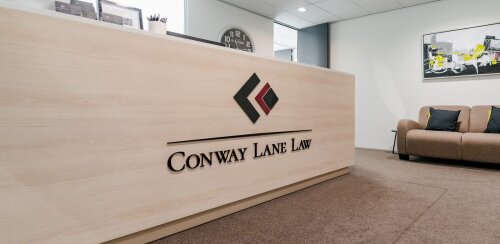Best Father's Rights Lawyers in Rangiora
Share your needs with us, get contacted by law firms.
Free. Takes 2 min.
Free Guide to Hiring a Family Lawyer
List of the best lawyers in Rangiora, New Zealand
1. About Father's Rights Law in Rangiora, New Zealand
In Rangiora, as in the rest of New Zealand, fathers’ rights are governed by family law that focuses on the welfare of children and clear parental responsibilities after separation. The legal framework centers on guardianship, care and contact, and the ability to make important decisions about a child’s upbringing. The key statutes are the Care of Children Act 2004, the Family Proceedings Act 1980, and the Child Support Act 1991.
The welfare and best interests of the child are the paramount consideration in decisions about care, contact and guardianship.
For Rangiora residents, courts in the Canterbury region handle parenting orders and related disputes, typically through the Christchurch registry of the Family Court or Canterbury District Court. A family lawyer in Rangiora can help draft parenting orders, prepare witnesses, and explain procedural steps. This guide outlines how to navigate the system and engage a solicitor or legal counsel effectively.
Source guidance and statutory context can be found on official government and court resources, including the Ministry of Justice and Courts New Zealand websites.
Related official resources you may consult: New Zealand Ministry of Justice and Courts of New Zealand. For the text of the governing statutes, see Legislation NZ.
2. Why You May Need a Lawyer
In Rangiora, certain situations commonly require skilled legal counsel to protect your rights and ensure the child’s best interests are met. Below are concrete, locally relevant scenarios where a father or would-be father benefits from legal advice or representation.
- Relocation and school continuity after separation. You live in Rangiora and want regular weekend access or holidays after your ex-partner moves to another town or city; a solicitor can help petition for a parenting order that secures consistent schooling and transportation arrangements for the child.
- Disputes over shared guardianship and decision making. You seek equal or substantial decision-making authority about health, education, and religion, and the other parent will not agree without court intervention.
- Urgent safety and protection concerns affecting parenting. There are safety risks or domestic violence concerns; you need urgent orders to protect the child and address contact restrictions.
- Enforcing or modifying child support obligations. The other parent does not meet agreed payments or income changes require a recalculation; you need formal enforcement or adjustment through Inland Revenue and the court system.
- Disputes about schooling, medical care, or travel for the child. You need a formal mechanism to resolve disputes when the other parent resists agreed plans or consistent routines.
3. Local Laws Overview
The core framework for Father’s Rights in Rangiora relies on three main statutes. The Care of Children Act 2004 governs parenting orders and day-to-day parental responsibilities. The Family Proceedings Act 1980 sets the procedure for family disputes and court processes. The Child Support Act 1991 governs how child support is calculated and enforced. These laws apply across New Zealand, including Canterbury and Rangiora.
Care of Children Act 2004 establishes parental responsibilities, guardianship, and the public policy aim of safeguarding the child’s best interests. It introduces modern parenting orders and emphasizes the child’s welfare as the central factor in decisions. See the official text for precise provisions and definitions.
Family Proceedings Act 1980 provides the procedural framework for family disputes, including how applications are filed, how hearings are scheduled, and what type of orders may be made. It supports timely, fair processes within the Family Court system.
Child Support Act 1991 governs child support arrangements, including calculation methods, changes in income, and enforcement. Inland Revenue administers the child support system under this Act.
Recent trends in New Zealand family justice emphasize earlier dispute resolution and easier access to mediation before court appearances, as part of the Family Justice System Improvement Programme. This aims to reduce court time and encourage negotiated settlements. See government and court resources for details on ongoing reforms.
Local context for Rangiora residents includes proceedings generally being heard in the Canterbury region, often via the Christchurch Family Court registry. For procedural guidance, consult the official resources listed in the Additional Resources section below.
Key sources for these laws and processes include Ministry of Justice, Courts of New Zealand, and Inland Revenue.
4. Frequently Asked Questions
What is the difference between guardianship and parenting orders?
Guardianship covers major decisions about a child’s welfare, such as health and education. Parenting orders govern day-to-day care and where the child lives. Both are guided by the Care of Children Act 2004 to protect the child’s best interests.
How do I start a parenting dispute in Rangiora?
Start by filing an application with the Canterbury registry of the Family Court. A family lawyer can help prepare affidavits, gather evidence, and outline proposed arrangements for the child.
When can I apply for a change to an existing parenting order?
You can apply when there is a significant change in circumstances, such as relocation, a change in the child’s schooling, or safety concerns. Courts assess whether the new arrangement serves the child’s best interests.
Where do I file parenting orders for Rangiora residents?
Papers are typically filed in the Canterbury registry, often via the Christchurch Family Court. A local solicitor can guide you through the correct forms and submission timelines.
Why should I consider mediation before going to court?
Mediation helps resolve issues faster and reduces court time. The Family Justice system encourages early dispute resolution to reach enforceable, child-centered agreements.
Can I represent myself in a family court matter?
Yes, you may appear without a lawyer, but you risk missing technical requirements and legal arguments. A solicitor can help you present a stronger case and navigate procedures.
Do I need to prove abuse to obtain a protective order affecting parenting?
A protective order can be sought on safety grounds. A lawyer can help you assess risk, gather evidence, and apply for interim or long-term protections if needed.
How much does it cost to hire a Father's Rights solicitor in Rangiora?
Costs vary by complexity and experience. Expect consultation fees, court filing costs, and potential hourly rates. Some lawyers offer capped fees for simple matters.
How long does a typical parenting case take in Canterbury?
Simple matters may resolve in a few months with mediation. More complex cases can take 6-12 months or longer, depending on evidence and court schedules.
Do I qualify for legal aid in a parenting dispute?
Legal aid depends on income and assets, and the matter type. A solicitor can assess eligibility or direct you to Government Legal Aid NZ resources.
Is joint parenting possible after separation in New Zealand?
Joint parenting is commonly pursued when it serves the child’s best interests. Courts consider factors such as time together, stability, and parental cooperation.
What documents should I bring to a Family Court hearing in Rangiora?
Bring birth certificates, custody/guardianship orders, school records, medical records, and evidence of arrangements or disputes. Your lawyer will tailor documents to your case.
5. Additional Resources
- Courts of New Zealand - Provides information on court processes, Family Court locations, and how to file parenting orders. courts.govt.nz
- Ministry of Justice - Offers guidance on family justice reforms, mediation options, and child welfare principles. justice.govt.nz
- Inland Revenue - Administers child support calculations and enforcement in New Zealand. ird.govt.nz
- Legal Aid New Zealand - Provides information about legal aid eligibility and access to representation for eligible clients. legalaid.govt.nz
6. Next Steps
- Clarify your goals and gather key documents. List what you want changed or protected, and collect birth certificates, prior orders, school records, and any safety evidence. Timeline: 1-2 weeks.
- Identify potential lawyers in Canterbury who specialise in family and Fathers Rights law. Search 3-5 firms, check reviews, and note experience with Rangiora clients. Timeline: 1-2 weeks.
- Book initial consultations with 2-3 solicitors. Prepare a short summary of your case and questions about costs, timelines, and strategy. Timeline: 1-3 weeks.
- Check eligibility for Legal Aid if applicable. Review income limits and application process with a lawyer or directly via Legal Aid NZ. Timeline: 1-4 weeks.
- Choose your solicitor and sign a retainer. Confirm scope of work, ongoing costs, and communication expectations. Timeline: 1-2 weeks after initial consultations.
- Prepare for mediation or court filing. Your solicitor will assemble affidavits, evidence, and proposed orders. Timeline: 2-6 weeks to file, depending on case complexity.
- Attend mediation and, if needed, court hearings. Follow your lawyer’s guidance for attendance and witness preparation. Timeline: variable, typically months to over a year for complex cases.
Lawzana helps you find the best lawyers and law firms in Rangiora through a curated and pre-screened list of qualified legal professionals. Our platform offers rankings and detailed profiles of attorneys and law firms, allowing you to compare based on practice areas, including Father's Rights, experience, and client feedback.
Each profile includes a description of the firm's areas of practice, client reviews, team members and partners, year of establishment, spoken languages, office locations, contact information, social media presence, and any published articles or resources. Most firms on our platform speak English and are experienced in both local and international legal matters.
Get a quote from top-rated law firms in Rangiora, New Zealand — quickly, securely, and without unnecessary hassle.
Disclaimer:
The information provided on this page is for general informational purposes only and does not constitute legal advice. While we strive to ensure the accuracy and relevance of the content, legal information may change over time, and interpretations of the law can vary. You should always consult with a qualified legal professional for advice specific to your situation.
We disclaim all liability for actions taken or not taken based on the content of this page. If you believe any information is incorrect or outdated, please contact us, and we will review and update it where appropriate.









